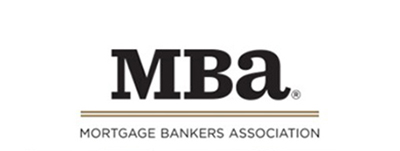
MBA Update on Debt Limit

Responding to MBA member concerns about the negative market and operational impacts for real estate finance firms in the event of a U.S. debt default, MBA President & CEO Bob Broeksmit, CMB, released the following statement.
In March, MBA organized a letter from a broad coalition of real estate trades to congressional leaders outlining the catastrophic consequences of a default on the real estate sector given the over $10 trillion in outstanding mortgage debt backed by the federal government. We also shared that letter with the National Economic Council staff at the White House.
During April and May, MBA has been in regular contact with the White House, Treasury, HUD and key congressional leaders. In fact, MBA hosted events with House Democratic Leader Hakeem Jeffries, D-N.Y., and House Majority Leader Steve Scalise, R-La., – with senior MBA staff, members and officers attending. Rest assured, the debt ceiling negotiations – and our industry’s concerns regarding default – were key points of discussion.
Given that default would be an unprecedented event, there is no standard “playbook” like the one we’ve all utilized during prior government shutdowns. Over the last number of days, MBA has been receiving input from members as we try to understand how our industry may have to navigate a default.
Among the questions we are looking at:
• How government employees will be impacted or furloughed in the event of a debt limit breach shutdown;
• How the GSEs’ single- and multifamily operations (given they are not funded directly by the government) will be impacted by market volatility and/or how investors view the strength of the PSPA backstop;
• How market disruption will impact Ginnie Mae securities desk operations – and, in turn, issuers and investors;
• How FHA/VA/RHS approvals – and getting loans insured and claims prioritized – will be handled; and
• What kind of guidance agencies may be receiving from Treasury and the White House.
As this is uncharted territory, answers have been hard to come by. Our contacts with the key agencies indicate that Treasury has not yet provided concrete guidance to FHA, VA, and RHS on how they should operate in the event of a default. Ginnie Mae has suggested that in the short term, its securities operations will be business as usual. However, if the impasse drags on, the issues related to FHA/VA/RHS claims payments would begin to impact Ginnie operations and issuers. GSE operations should not be impacted directly, but the reaction of capital markets to even a short-term default could be significant.
As you’re likely reading in the press, negotiators continue to work on the key elements of a deal, including caps on discretionary federal spending growth, energy permitting reforms, and a “claw back” of unspent pandemic relief funds – all tied to an increase in the debt limit. That said, President Joe Biden and Speaker McCarthy getting a “deal” may be the easy part. The hard part will come with getting a bipartisan mix of 218 votes to pass the deal in the House – so a short-term hike until the fall may still be in play, given time constraints.
We’ll keep you posted as events unfold and we learn more. In the meantime, we value your questions and insights as June 1 and the Treasury Department’s “X” date get closer.
